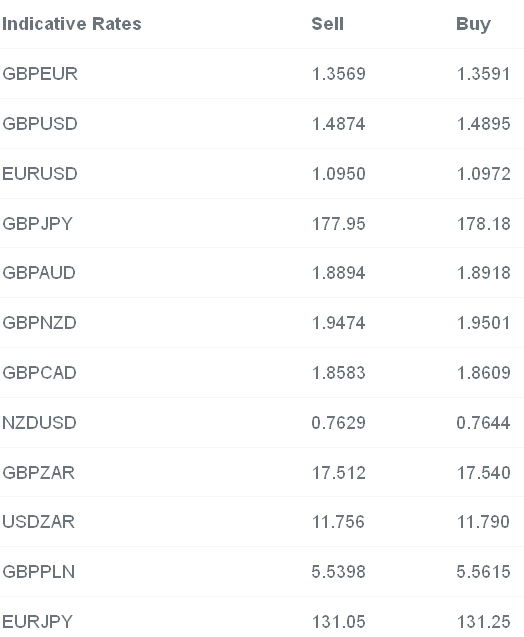Yesterday confirmed that there has been no inflation – or noflation as I have taken to calling it – within the UK in the past 12 months. Given the moves in energy and food commodity markets, the low levels of demand, and the strength of the pound a move to an inflation rate of 0.0% was always on the cards in the UK. The question is now how much further and for how long the number can remain this low.
While these ‘transitory’ moves in commodity markets may fade out of the inflation basket by the end of the year there is a lot to be said for inflation being hurt further by so-called second round effects, particularly in wage negotiations. That may have already started given the fall in core prices from 1.4% to 1.2%. Core prices are seen as more stable than headline prices because they do not count fuel and food. To see core prices dipping once again is an expected but not yet concerning feature of the UK economy.
The politics of deflation
I am looking for a couple of months of deflation in the UK which will be beneficial for consumers as the pressure on earnings and savings falls slightly. The development also seems to take the pressure off the government with many newspapers saying that this is good news for the Conservatives.
Of course the ‘control’ over inflation that the government espouses has absolutely nothing to do with George Osborne’s long-term economic plan. Inflation is a global concern and to be a Chancellor that will be making additional spending cuts through the next parliament if the Tories are re-elected risks further deflationary pressures. That is a long-term economic plan that few will want to sign up to.
Low liquidity equals high volatility
Sterling initially slipped lower on the announcement and spent most of the day being rattled around by a volatile EUR/USD. Since last week’s Federal Reserve meeting market liquidity has been very poor. While the FOMC’s statement and the following press conference were surprisingly dovish the lack of liquidity in G10 markets is what sent EUR/USD to 1.1060 and GBP/USD to 1.5150 in the hours following. This situation has not been rectified as yet.
US Dollar was supported yesterday following an inflation reading that suggested that prices are starting to awake from a winter of hibernation. CPI in the US rose by 0.2% on the month, the first gain in four months. “The committee continues to expect a moderate pace of GDP growth with robust job gains and lower energy prices supporting household spending,” Fed Chair Janet Yellen said last Wednesday. Once again it will be wages that are the focus of an inflationary rally. Payrolls from the US are due next Thursday.
Greece funding pressures back in focus
Noises from Greece this morning seem to be giving markets cause for concern. Today is Independence Day in Greece; an ironic holiday given the country’s position within the European Union at the moment. Report in the past 24hrs have seemed to suggest as well that the Greek state is running seriously low on available funds once again. The numbers differ between reports but we know that a EUR450m loan to the IMF must be repaid on April 9th while a public sector wage bill of around EUR1.7bn is also due at the end of March.
Greece in the meantime has been banned from increasing its holdings of short-term government debt while once again limiting the amount of Greek debt that the European Central Bank can accept as collateral on additional loans.
Unfortunately this is all a reaction to the glacial pace of the negotiations between Greece and its creditors. While the current bailout plan has been extended until the end of June it could very well be the first fortnight of April that breaks Greece once again.

